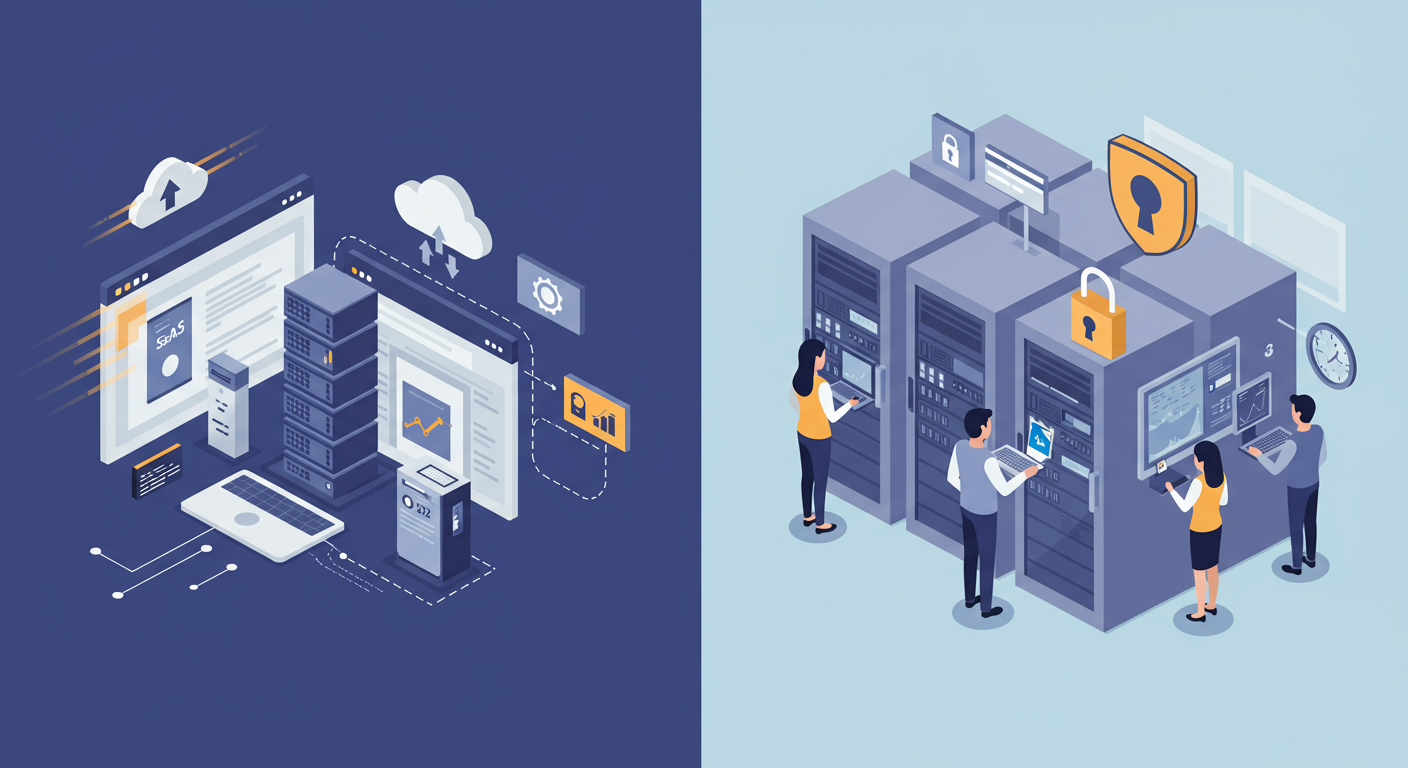
When choosing a private app store, one of the most critical decisions you’ll make is the deployment model. This choice impacts everything from initial cost and setup time to long-term control and security posture. At Appstore360, we offer two primary models to fit the diverse needs of modern enterprises: Fully Managed (SaaS) and Self-Hosted/Private Cloud.
Understanding the differences is key to selecting the right path for your organization. Let’s break them down.
The Fully Managed (SaaS) Model
The Software-as-a-Service (SaaS) model is built for speed and convenience. In this setup, we handle all the technical heavy lifting.
- How it works: We host, manage, and maintain the entire Appstore360 platform on our secure, high-performance infrastructure. You simply log in through your web browser to manage your apps and users.
- Best for: Organizations that want to get started quickly, prefer a predictable operational expense (OpEx), and want to offload the burden of server maintenance, security patching, and updates.
The Self-Hosted / Private Cloud Model
This model is designed for organizations that require maximum control and data sovereignty.
- How it works: We provide you with the Appstore360 software package to deploy on your own infrastructure. This could be your on-premise servers or your private account within a cloud provider like GCP, AWS, or Azure. Your IT team manages the underlying infrastructure.
- Best for: Enterprises with strict data residency requirements, specific compliance needs (like HIPAA or GDPR), or those who need to deeply integrate the app store with other internal, air-gapped systems.
Unsure Which Path to Take?
Our deployment experts can analyze your requirements and recommend the perfect solution for your organization.
Talk to an ExpertKey Factors for Your Decision
Here’s how the two models stack up across crucial business factors:
1. Control and Customization
- SaaS: Offers excellent customization for branding and user policies within the platform’s framework. We manage infrastructure-level control.
- Self-Hosted: Provides complete, granular control over every aspect of the environment, from server configurations to network security rules.
2. Security and Compliance
- SaaS: Our platform is built with enterprise-grade security. It’s ideal for most security needs.
- Self-Hosted: The ultimate solution for organizations that must adhere to strict data sovereignty laws, as all data resides within your own certified network boundaries.
3. Cost and Maintenance
- SaaS: A predictable, recurring subscription fee. No surprise maintenance costs or need for dedicated IT hardware and personnel.
- Self-Hosted: Involves upfront costs for licensing and potential hardware, plus ongoing internal costs for maintenance, monitoring, and updates by your IT team.
4. Speed of Deployment
- SaaS: The fastest way to launch. Your private app store can be up and running in a matter of hours or days.
- Self-Hosted: Requires more time for your team to provision servers, configure networks, and install the software.
The best model isn’t the one that’s universally better, but the one that aligns perfectly with your organization’s unique operational, security, and financial needs.
Both models provide a secure and robust platform for your Android apps. By understanding these trade-offs, you can make an informed decision that empowers your mobile strategy for years to come.
Back to All Articles